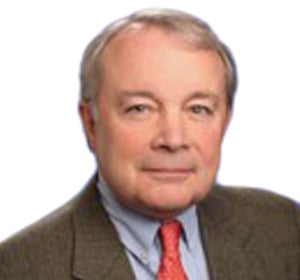Governance Surveys
Directorship Magazine

Heavier Committee Work Calls for Coordination, Communication
With standing committees playing an increasingly vital role in helping boards carry out their oversight responsibilities, there is a premium placed on coordination and communication among committees. The overarching challenge—which we see lead directors and nominating and governance committee chairs tackling in various ways—is to help prevent critical risks from falling through the cracks and provide committees with a coordinated, holistic view of how they should oversee vital issues.
This is not a new challenge. Companies and their boards have long dealt with a complex and demanding business and risk environment—from technology and business model disruption to cybersecurity and data governance to investor scrutiny, regulatory and political uncertainty, and geopolitical risk. But the COVID-19 crisis and other events of the past two years have made the business and risk environment even more challenging, with an increased volume of investor and stakeholder demands regarding corporate purpose; environmental, social, and governance (ESG) issues; human capital management (HCM); diversity, equity, and inclusion (DE&I); and more.
As a result, many boards are delegating specific oversight duties to standing committees—beyond those prescribed to the audit, compensation, and governance committees by stock exchange listing requirements—for a more intensive review of issues and risks. For example, depending on the company size, industry, and other unique company considerations, we see boards delegating to various standing committees responsibility for supporting the board’s oversight of ESG, HCM, cybersecurity and data governance, legal and regulatory compliance, mergers and acquisitions, and culture.
Multiple committees may have responsibility for specific aspects of one issue. For example, elements of ESG frequently reside across the nominating and governance, compensation, and audit committees. Cybersecurity is often on the audit committee’s plate but may also fall under the purview of a technology or other committee. HCM issues, meanwhile, may span both the compensation and governance committees. Boards should expect such overlapping oversight responsibilities. But in the absence of close coordination and communication, there is a risk that the board may become balkanized, with each standing committee focused on its own oversight activities and thus failing to share important information that other committees and the entire board may need for their respective oversight.
Effective communication and coordination among committees is an ongoing challenge that can be exacerbated by several factors, including overloaded committee agendas; the absence of clear delineation of oversight responsibilities; a lack of sensitivity to (or understanding of) the information needs of each committee; a “default mentality” in which directors or committees assume that the audit committee (or another committee) has sole responsibility for specific risks; simultaneous committee meetings that prevent directors from attending the meetings of other committees as a way to stay apprised of issues potentially affecting their own committee’s oversight activities; and boilerplate committee reporting to the board.
To help promote effective information sharing and coordination among committees, boards can do the following:
-
Identify areas where committee oversight responsibilities may overlap and develop a process for frequent communication, sharing, and discussion of oversight activities in these areas.
-
Maintain overlapping committee memberships or informal cross-attendance at committee meetings when inter-committee coordination is of strategic importance and hold joint committee meetings periodically.
-
Hold regular meetings of standing committee chairs to discuss oversight activities.
-
Insist on robust committee reports to the entire board. Well-focused and appropriately detailed information can help keep all standing committees informed of matters potentially affecting their oversight responsibilities.

Patrick A. Lee is a senior advisor with the KPMG Board Leadership Center.
KPMG is an NACD strategic content partner, providing directors with critical and timely information, and perspectives. KPMG is a financial supporter of the NACD.

